Educational Projects
Education forms one of the three major pillars of a geopark. It is essential that this axis be worked on in a broad way so that all segments of education can understand and apply the principles of geoconservation, the notion of cultural and historical heritage, and the values advocated by UNESCO. The Geopark Uberaba project has been developing strategies to involve the Education Secretariat, school principals, teachers, and students in actions that contribute to the knowledge and appreciation of the geological, historical, ecological, and cultural heritage of the territory, the conservation of nature, and the sustainable development of the region, advocating the 17 Sustainable Development Goals (SDGs).
Teacher training for the Municipal Education Network
The signatories of the Geopark Uberaba Terra de Gigantes project, UFTM, ABCZ, Uberaba City Hall, Sebrae MG, and recently with the partnership of IFTM, promote the course 'Educating to transform Terra de Gigantes'. The course, promoted by the Environmental Education Working Group, formed by collaborators from the Institute of Exact, Natural and Education Sciences - ICENE, the Institute of Education, Letters, Arts, Human and Social Sciences - IELACHS, the Federal Institute of the Triângulo Mineiro - IFTM, the Museum of Zebu and the Casa do Educador of the Municipal Government of Uberaba, with the support of the Pro-Rectorate for University Extension - PROEXT of UFTM, aimed to immerse teachers in the practical knowledge of the functioning of a Geopark. The Environmental Education Working Group comprises UFTM professors Flávio Henrique Dias Saldanha (History), Fabrício Anibal Corradini (Geography), Wagner Rodrigues da Silva (Biological Sciences), Thiago Marinho (Biological Sciences), Catarina Teixeira (Biological Sciences), Daniel Fernando Bovolenta Ovigli (Rural Education); UFTM technical-administrative staff Luiz Carlos Borges Ribeiro (geologist/CCCP) and Paula Cusinato (DDCULT/PROEXT); Lúcia Lacerda Cruvinel (tourism specialist/Municipal Government of Uberaba); Bruno Garcês (Chemistry/IFTM); Thiago Riccioppo (Museum of Zebu/Casa do Educador and ABCZ); Rodolfo Nogueira and Júnior Afonso, representing the business sector of the city. The initiative started in 2021, and two editions of this action took place. It continued in 2022 with one class. The course is offered by the Casa do Educador Dede Prais - CAED, and is divided into theoretical and immersive modules, with non-formal learning experiences 'in loco' in various environments in the city. The first two immersive meetings took place at the Peirópolis Cultural and Scientific Complex - CCCP, where teachers from municipal schools in the Uberaba education network learned about the proposal of this geosite, the Museum of Dinosaurs, and the reality of the community. Another moment was the opportunity to know part of the Geodiversity of Uberaba, there was a visit to Mogiana, Univerdecidade Geosite, and Serra da Galga Geosite. In these environments, their specificities were presented in the rock formations, geological time, as well as the specific conditions for the emergence of fossils. Another group also participated in these meetings, in partnership with CAED and UFTM, entitled 'Pedagogy of spaces: getting to know the territory of Uberaba'.
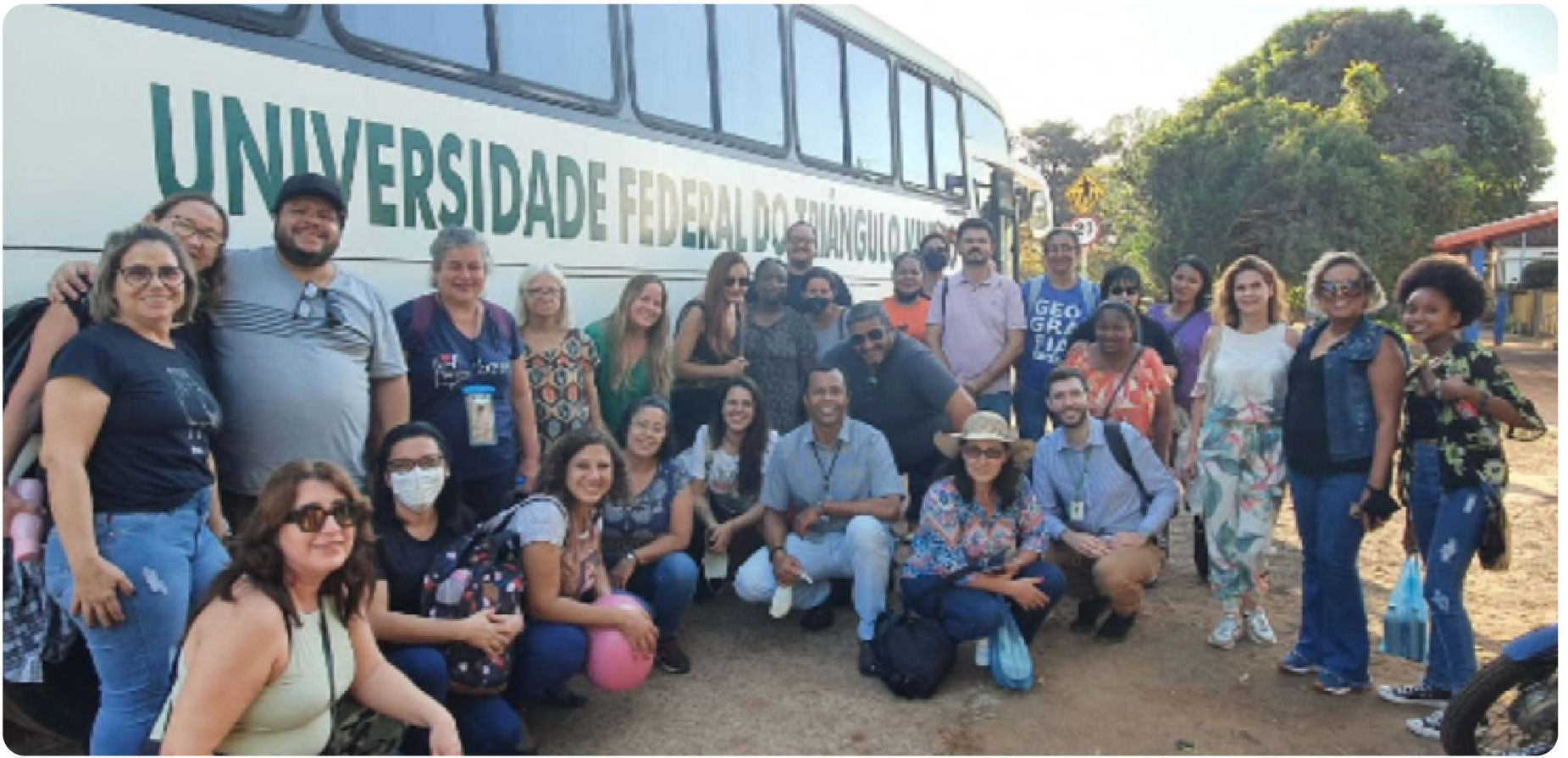
*On the last Saturday, 4/06/2022, the 3rd Meeting of the Teacher Training Course for the Municipal Education Network - Geopark Uberaba Project - Land of Giants took place in person at the Peirópolis Cultural and Scientific Complex - CCCP.
The 2022 edition of the course took place the day before World Environment Day and aimed to immerse teachers in the practical aspects of how a Geopark operates. Other groups will also be formed, in person at the geosites and historical-cultural sites of the project until October of this year.
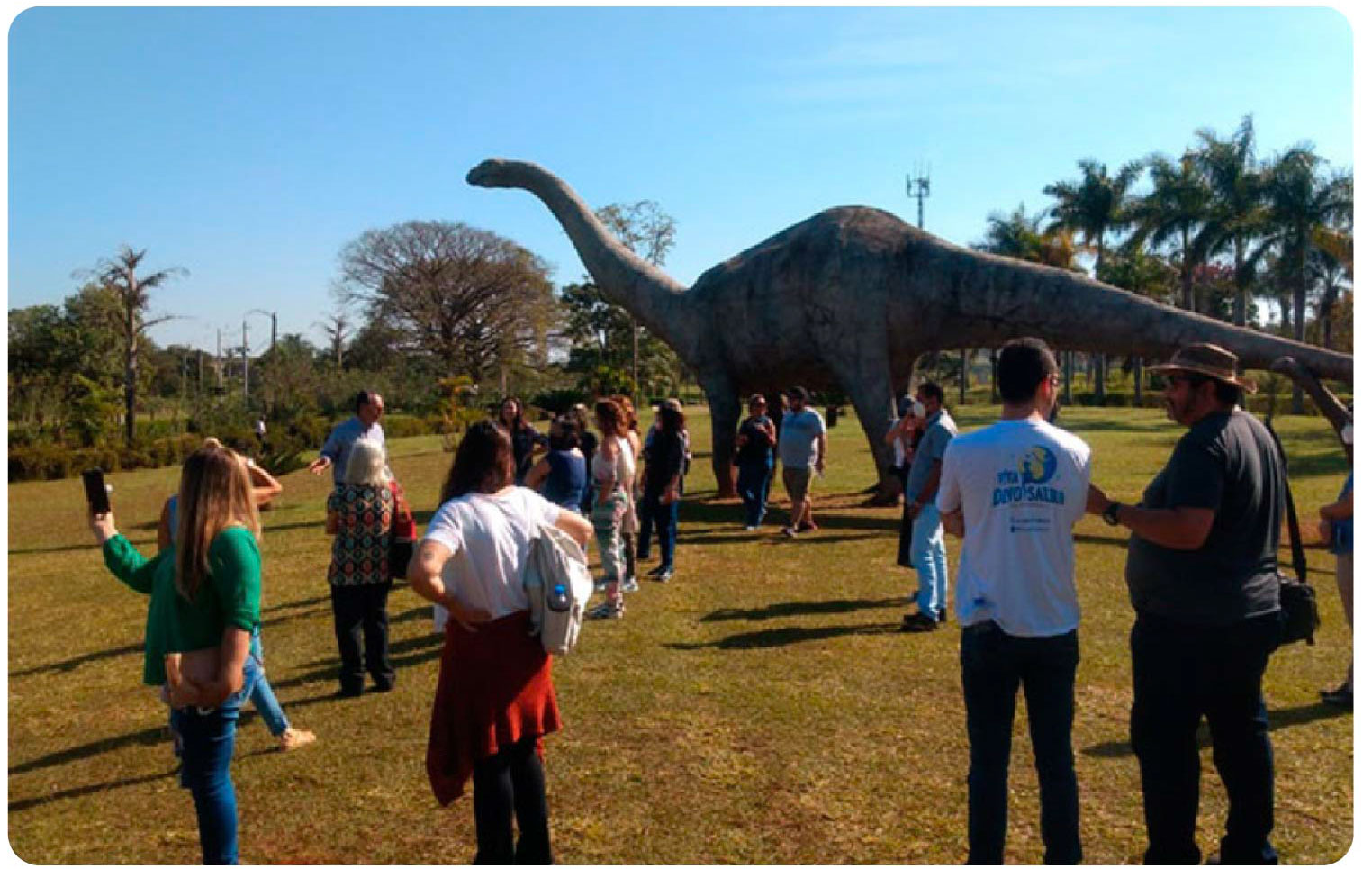
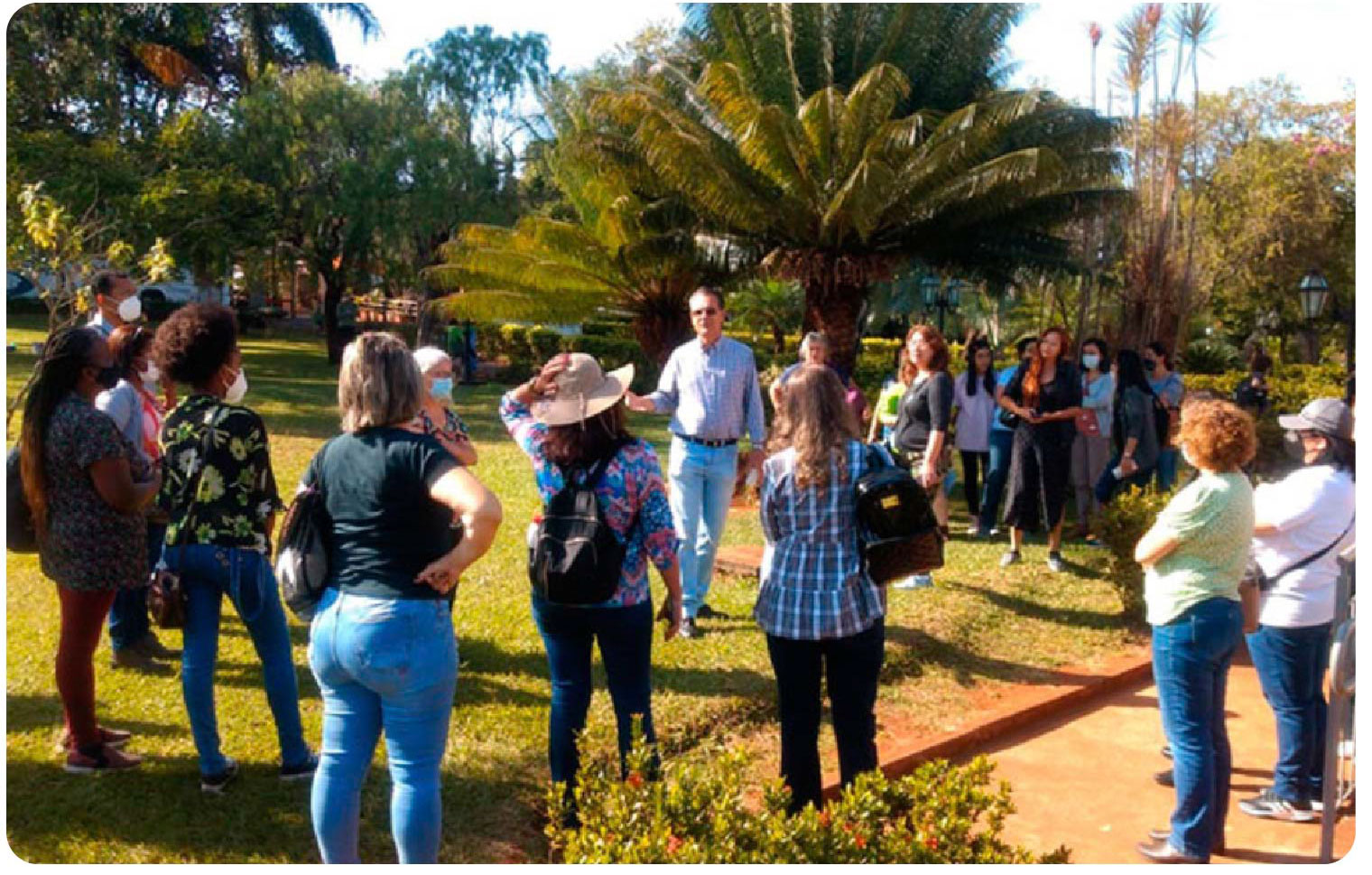
PROTEU
The University Student Training Program (PROTEU), now in its XVIII edition, is carried out by UFTM, an educational project focused on geoeducation aimed at university students who wish to immerse themselves in paleontology and geology.
The program has served students from various universities throughout the country. The course provides a practical theoretical experience in excavation, fossil preparation, screen washing technique mastery, replica making, paleoart workshop, reading and discussion of specialized literature on this topic. A true immersion in various aspects of paleontology.
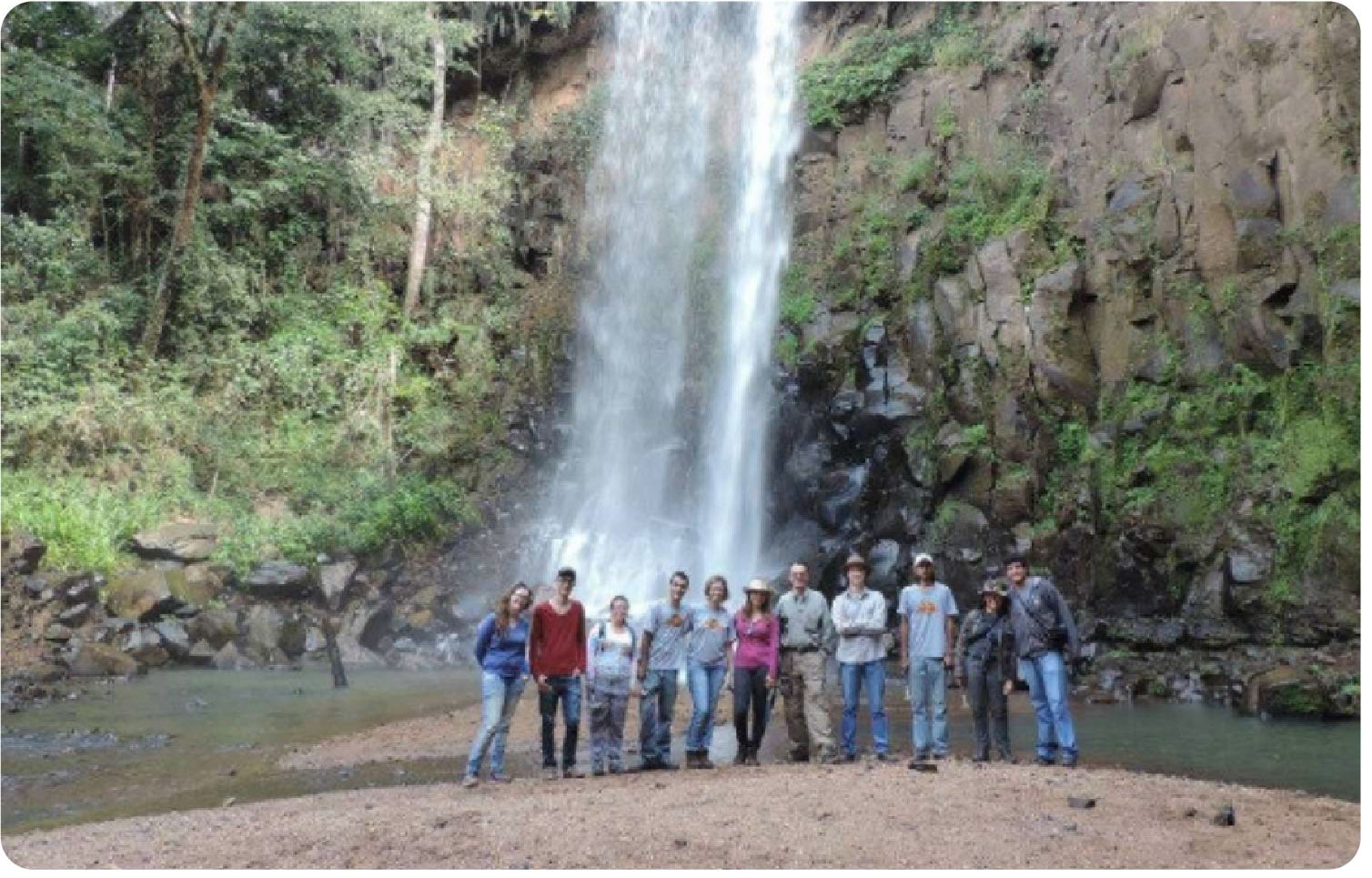 Source: CCCP Collection, UFTM, 2021
Source: CCCP Collection, UFTM, 2021
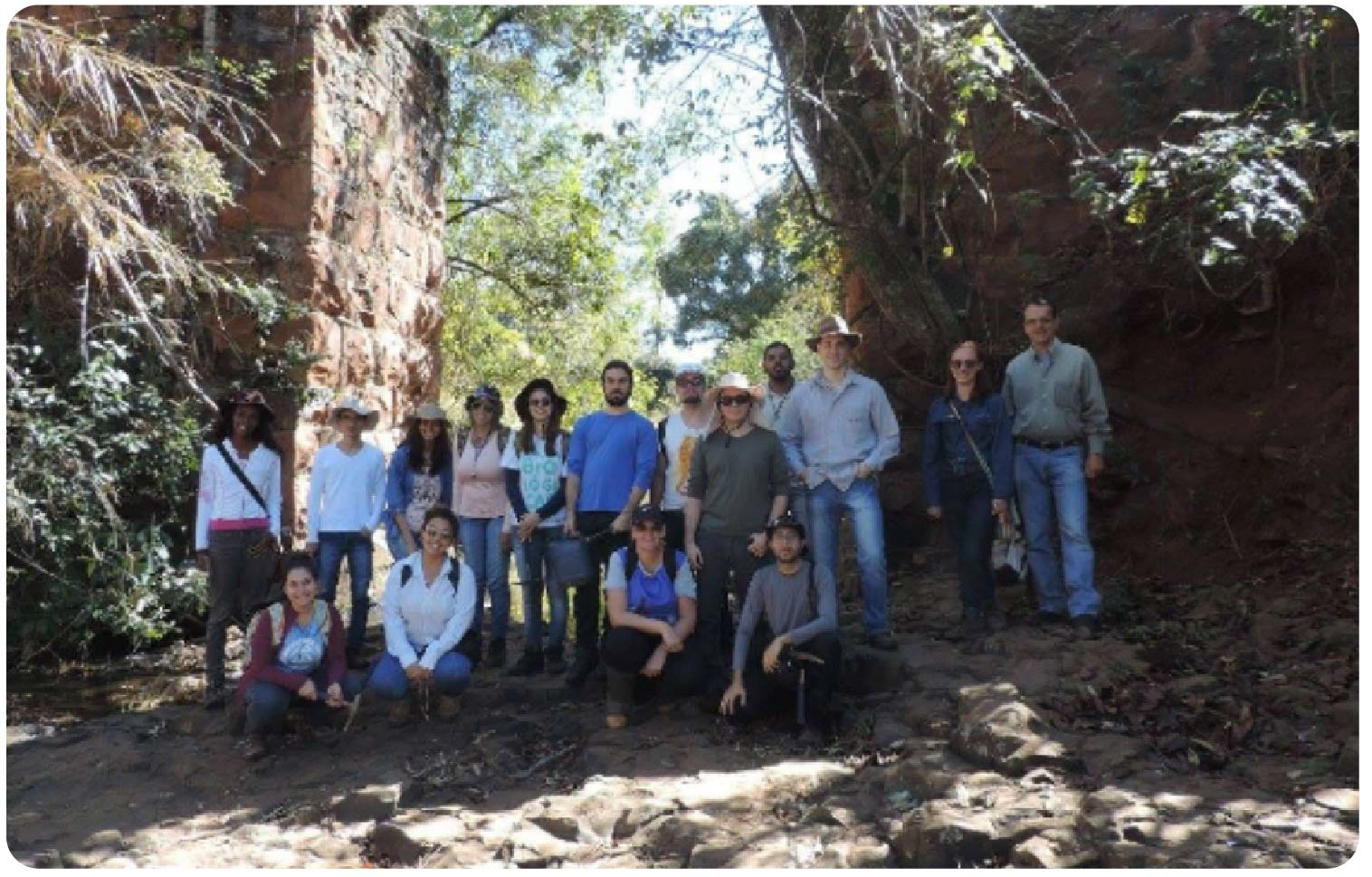 Source: CCCP Collection, UFTM, 2021
Source: CCCP Collection, UFTM, 2021
Week of Dinosaurs
Another UFTM project focused on geoconservation is the Dinosaurs Week, which usually takes place in October, an educational program focused on children and young people and also carried out by the CCCP team at UFTM.
The course includes five intensive days of informal education discussing the theme of paleontology in a didactic, interactive, and specific language for young audiences. The program also includes visits to excavations, lectures, pedagogical workshops, and guided tours of the Dinosaur Museum. Thus, the themes of paleontology, dinosaurs, geodiversity, and environmental preservation are addressed in a playful and easy-to-understand educational way.
Starting in 2011, the Dinosaurs Week was included in the National Science and Technology Week, held annually by the Ministry of Science, Technology, and Innovation (MCTI) as part of the official schedule, whose objective is to promote and disseminate science throughout the country.
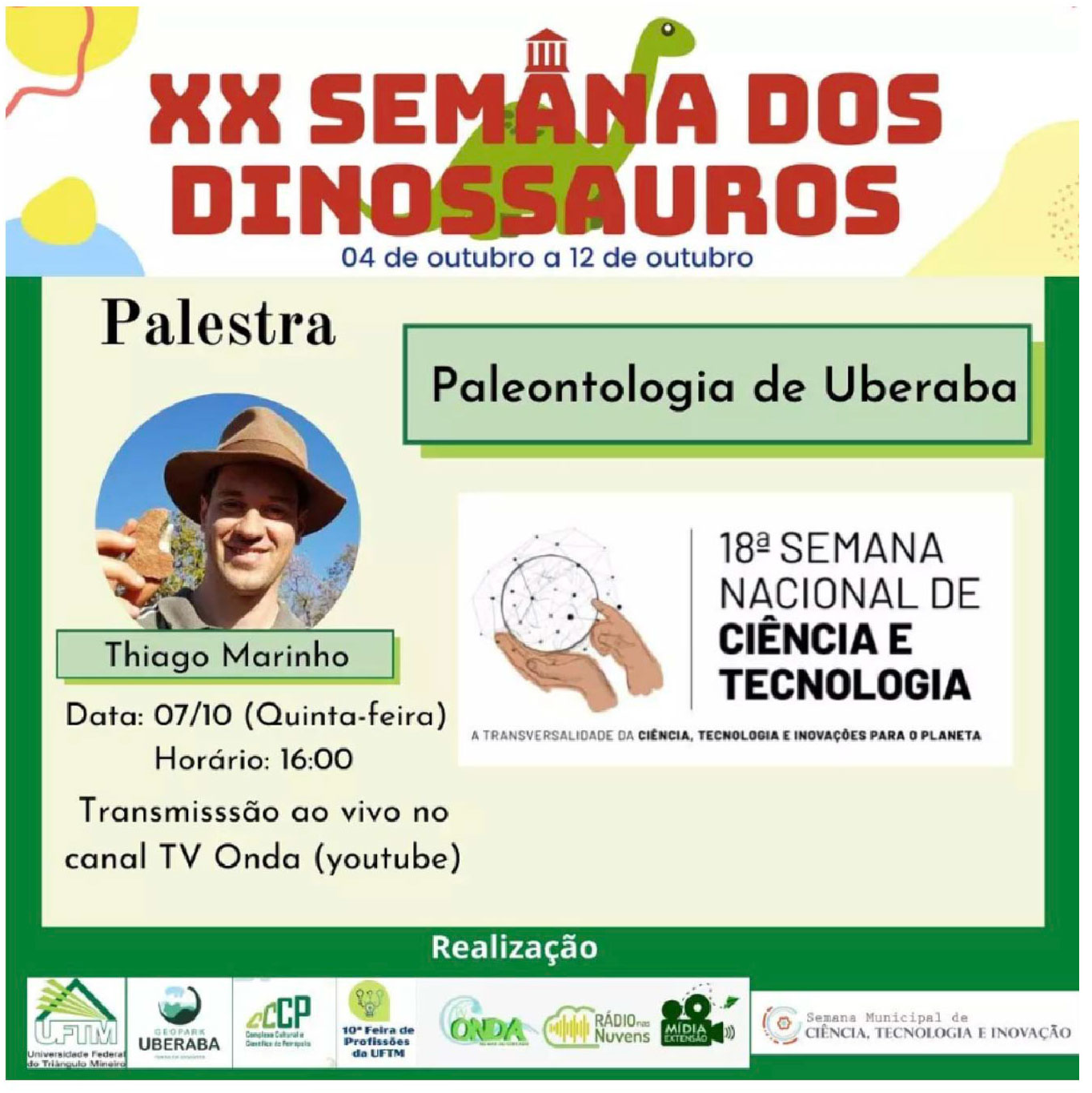
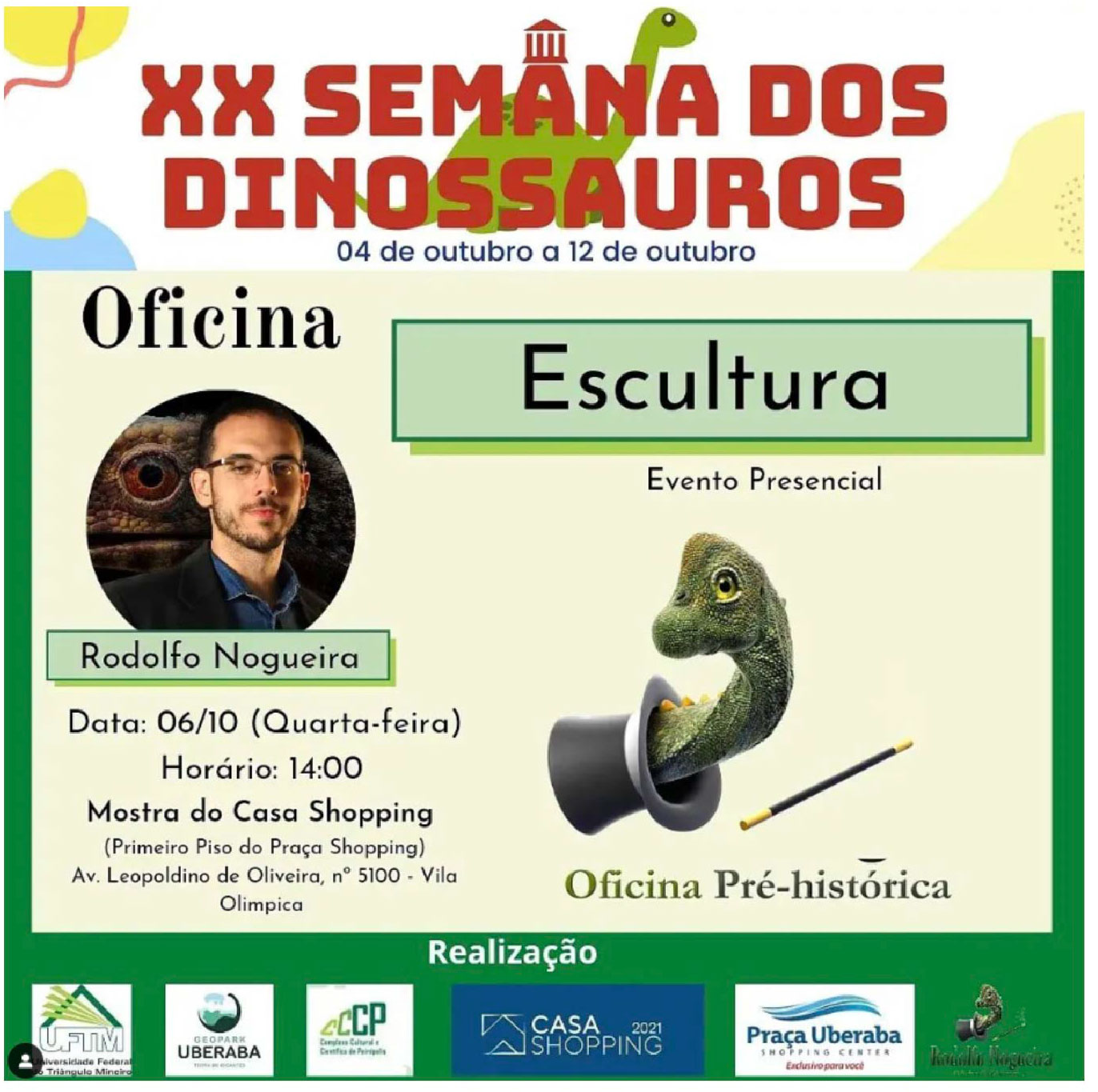
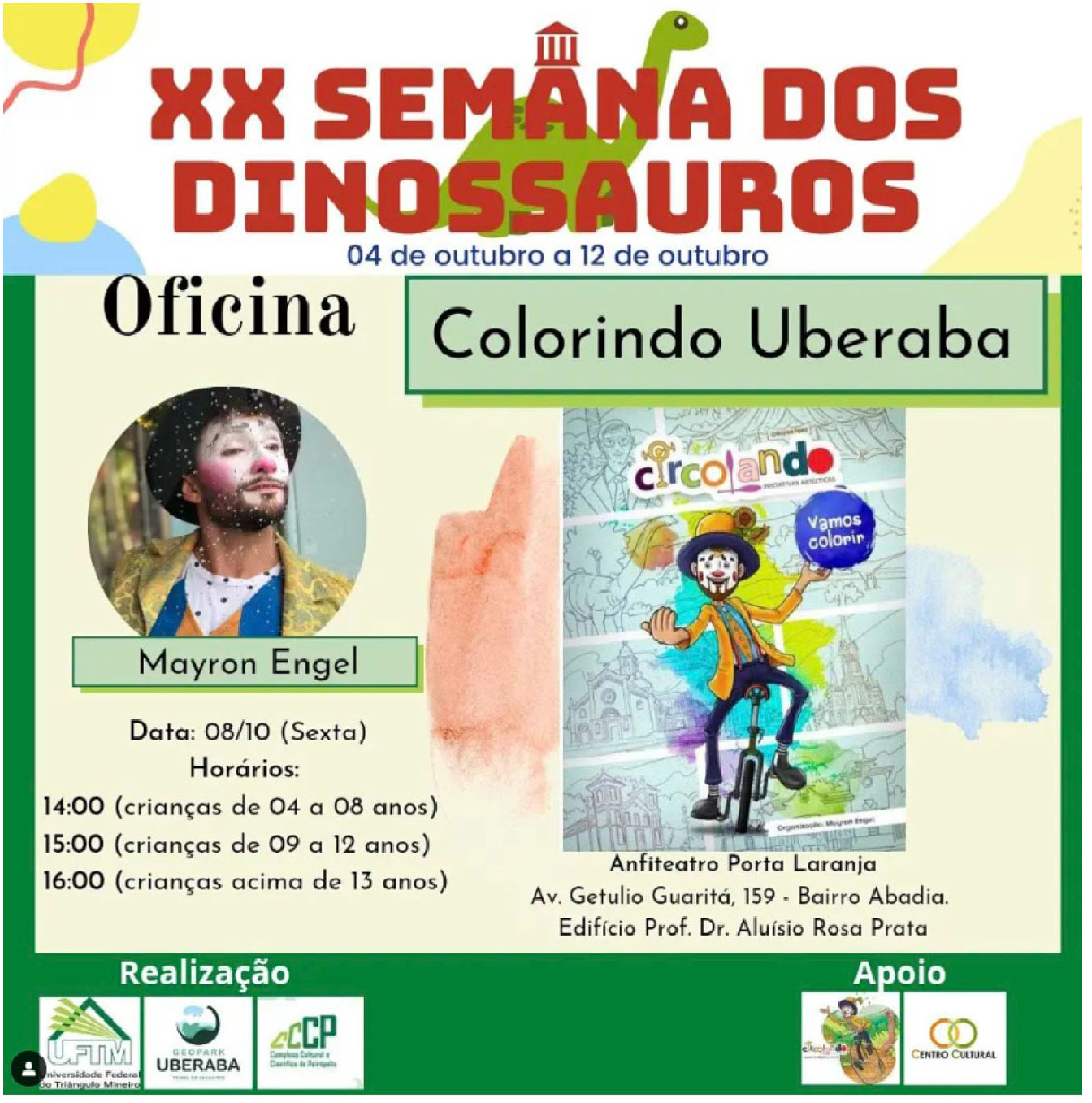
Zebu in Schools
In addition to the programs carried out by UFTM, there are also programs executed by ABCZ, such as 'Zebu na Escola,' 'Zebu na Universidade,' and 'Café com Prosa' carried out by the 'Edilson Lamartine Mendes' Zebu Museum Foundation (LOPES; REZENDE, 2019).
The 'Zebu na Escola' project was developed to serve students from municipal, state, and private schools. The students visit the Parque Fernando Costa and the Zebu Museum with guided tours and presentations of animals exhibited at the fair. They also participate in various activities such as scavenger hunts, pedagogical workshops, a mini sustainable farm, and interactive games like the 'Zebu Games.'
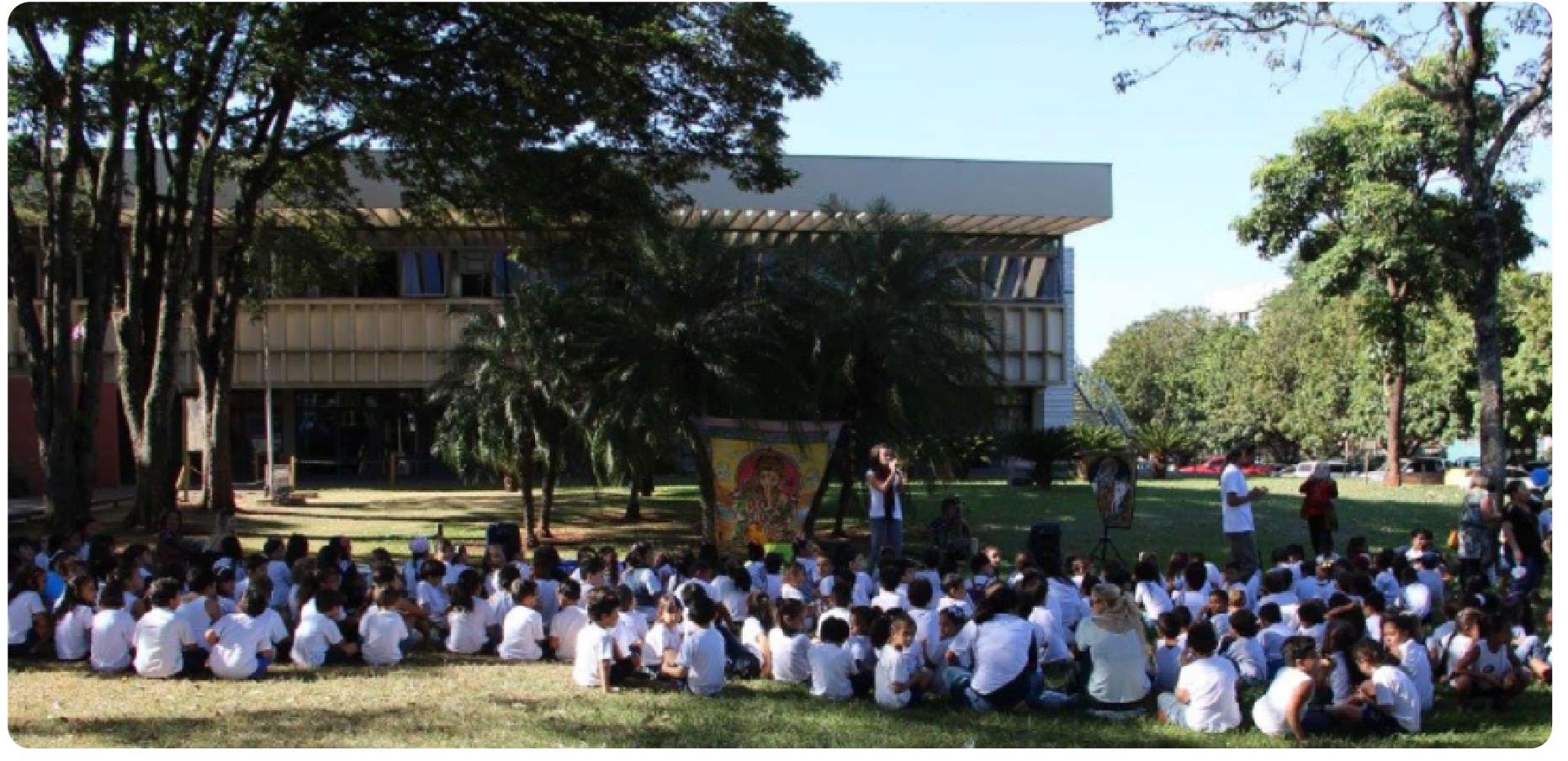 Source: Archive of the Zebu Museum, 2021
Source: Archive of the Zebu Museum, 2021
In this way, in a playful and interactive way, students learn about the history of zebu cattle farming in Brazil, and especially about the cultural and historical heritage of the city of Uberaba. In addition, young people receive the Turma do Zebuzinho magazine, which has various activities that address the history and culture of zebu cattle, enriching the available educational material for students.
Zebu at the University
The Zebu in the University project promotes the integration of both the Museum and the ABCZ with higher education institutions. University students acquire knowledge about technical work related to livestock farming, the environment, and the cultural heritage of Uberaba through guided tours and technical classes.
 Source: https://www.abcz.org.br/noticias/noticia/22601/pmgz-corte-retoma-zebu-na-universidade-este-mes
Source: https://www.abcz.org.br/noticias/noticia/22601/pmgz-corte-retoma-zebu-na-universidade-este-mes
Coffee and Conversation
The Coffee and Conversation, another initiative carried out by ABCZ at the Museu do Zebu, aims to bring together personalities from the cattle-raising world with students from the University of Uberaba (UNIUBE) and the Faculdades Associadas de Uberaba (FAZU), both higher education institutions. The project aims to study, conserve, and disseminate the history of Brazilian culture through its pioneers in the creation of this breed. There is a rich exchange of values, experiences, perspectives, opportunities for living and interacting with the elderly and the younger public alike.





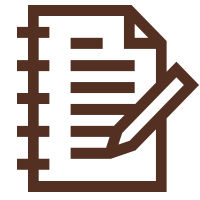









 Versão Português
Versão Português